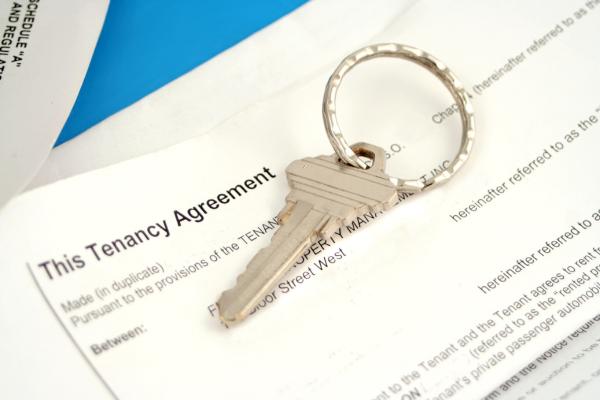
Investing in a tenant-occupied property can be a smart move, offering immediate rental income and potential for appreciation. But before you jump in, how do you know if this property will turn a profit? How do you know if the tenant is paying regularly? This blog will equip you with the essential questions to ask when buying a tenant-occupied property. We'll delve into reviewing the lease agreement, understanding what you’ll be required to continue for the tenant, assessing the quality of the current tenant, and uncovering the property's condition. We'll even explore ways to confirm the tenant's track record of on-time rent payments, giving you the financial confidence you need to make an informed investment decision.
1. The Lease Agreement - Ask to see a copy of the lease
- The Lease "Runs with the Land: Leases are considered to "run with the land," meaning they are attached to the property itself, not the owner. When you buy the property, you inherit the existing lease agreement with the current tenant.
- Length of Lease: A longer lease term (ideally a year or more) provides stable income and reduces vacancy risk. Short-term leases mean more frequent tenant turnover, which can be disruptive and costly.
- Rent: Review the current rent amount. Does it align with market rates for similar properties in the area? Is there room for potential rent increases upon lease renewal, considering local rent control regulations?
- Tenant Obligations: Ensure the lease clearly outlines tenant responsibilities regarding maintenance, utilities, and adhering to house rules
- Landlord Obligations: Look for any obligations the owner will have such as paying for trash removal, water or utilities.
2. Assignment of the lease and security deposit
- Assignment of the Lease: In addition to the contract to purchase, there should be an assignment of lease to the new owner at the time of settlement.
- Security Deposit: The language should be clear that the security deposit WITH interest shall be transferred to the new owner at settlement.
3. Tenant Quality:
- Payment History: Obtain copies of rent receipts or bank statements from the seller to verify the tenant's on-time payment history. Late payments can become a recurring issue.
- Schedule C: Obtain a copy of the current owner’s Schedule C to see that the income reported matches with the payment history of the tenant. Ask to see their Rent Roll or Profit & Loss statement as well.
- Application & Screening Report: Request the tenant screening report conducted by the seller. Obtain the credit report and background report as well as their application, full contact information and emergency contact info.
- Communication with Tenant: Schedule a meet-and-greet with the tenant before closing. This allows you to assess their demeanor and gauge if they seem like responsible occupants who will care for the property.
4. Property Condition:
- Lead certificate: Ask to see a copy of their lead certificate if the home was built before 1978 or required by the local governing county.
- Rental license: Ask for the rental license and rental inspection report. This may not be required in all cities or counties.
- New Inspection Report: Get a thorough home inspection from a qualified professional to identify any existing maintenance issues or potential problems. This can help you factor in repair costs and budget accordingly.
- Review Maintenance Records: Request any maintenance records from the seller. This history can reveal potential recurring problems and the overall upkeep of the property by the current tenant.
5. Financial Analysis:
- Cash Flow Projection: Factor in the current rent, estimated vacancy rate, maintenance costs, property taxes, and insurance to determine the property's projected cash flow. Does the income cover your expenses and generate a positive return on investment?
- Potential Rent Increase: Research local rental market trends. Consider the possibility of increasing rent upon lease expiration (following local regulations) to improve future cash flow.
6. Additional Considerations If This Is Your First Rental Investment:
- Local Landlord-Tenant Laws: Familiarize yourself with the legal rights and responsibilities of landlords in your area. Understanding eviction procedures, security deposit deductions, and renter's rights is crucial.
Working with a good real estate agent who has experience in this field is a great next step. If you're looking for your next investment property, having an expert guide you through the intricacies of buying tenant-occupied homes can mean the difference between a smooth transition and a potential headache. By asking the right questions and understanding the key factors involved, you'll be well on your way to securing a great rental investment.
If you have questions or would like to discuss property management services for your investment property, give us a call at 443.252.3385 or email us at info@bluedoor-pm.com today!
Copyright © 2024 Blue Door Residential Property Management